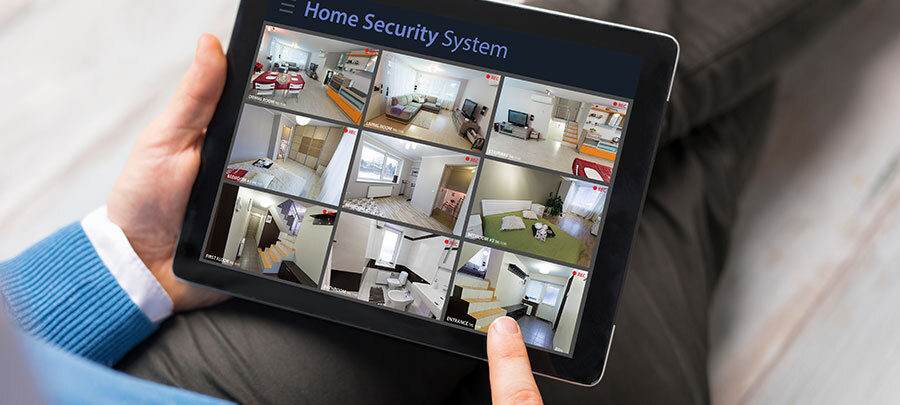Wireless CCTV: Connecting a Burglar Alarm System, Part 3
In part one of this series on linking wireless internet CCTV cameras to burglar alarm systems we outlined the things you will need in order to add internet connectivity and SMS alerts to older home security systems. In part two, we described how to do the wiring. In this final part of the series, you will find out how to configure everything to turn your old burglar alarm system into a state-of-the-art home security system for the 21st century.
Check your alarm system manual to see if you need to do any reprogramming of the box, or moving of dip switches or so-called “jumpers” (connectors between two points that can be moved to change a system’s functionality). You want to make sure that when your camera sends an alarm signal to the input port of the alarm box (when it detects movement), it causes the alarm system to trigger. You also want to make the burglar alarm activate its digital output port and thereby inform the camera when the alarm system is triggered.
At the camera end, check the camera manual to find out how to configure an event action so that when the camera detects movement, it sends a signal down the cable to the alarm box. Once you have this setup, when your cameras detect movement, your burglar alarm will go off. Now make sure the opposite end of the equation works. The aim is that when the burglar alarm triggers and sends a pulse to the camera’s input port, the camera will send a text message to your phone and record images of the scene. Configure the camera so that it will trigger when its input port is activated. If you haven’t the time or inclination to do all this yourself, you may prefer to buy a ready-configured camera pack from a wireless CCTV specialist in San Francisco, CA.
When you use wireless CCTV cameras to trigger an alarm system in this way, there are a few safeguards that you need to build in. These cameras are very sensitive to changes in the picture, and may not always be able to differentiate between a change in light levels, such as a street light coming on outside your home or the sun moving behind a cloud, and an intruder. For this reason, it is very important only to use a camera in this way where there is no possibility of a change in natural or artificial light within the camera’s field of vision. An internal hallway or corridor would be a good location, as any change in the image here would likely require an intruder.
The payback for going through the process of integrating a wireless CCTV camera with your alarm system in this way is that you will end up with a much more effective and useful home security system. Firstly, it will be able to “see” through the lens of the camera. Secondly, instead of just ringing an alarm bell on the side of the property, the system will advise you almost instantly of any alarm by sending a text message to your mobile phone, using the functionality of the camera. This means that you can log in over the internet from wherever you are and see what is going on. Finally, you will also be able to review the incident that caused the alarm, by looking at images that the camera will have recorded. You can do all of this within moments of the incident and alert the emergency services who will take you very seriously indeed when you tell them you have actually seen the intruders!
By adding a wireless internet CCTV camera to your alarm system you can achieve peace of mind on a different level. These can be easily obtained from your local provider in San Francisco, CA. You will know that if your camera detects movement, your burglar alarm will sound. You will know that if your burglar alarm is triggered, you will get an instant text message and be able to take a look at what is going on, from wherever you happen to be. This really can bring the average alarm system into the 21st century without the cost of replacing it.

